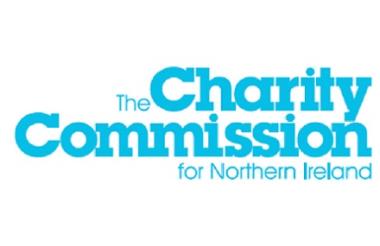The Charity Commission for Northern Ireland (CCNI) needs a “cultural reset” and renewed focus on completing the register of charities, an independent review has recommended.
In April last year Northern Ireland’s communities minister, Deidre Hargey, commissioned an independent review into the charity regulator after a court ruling rendered many of its decisions invalid.
The review considers the Charities Act (Northern Ireland) 2008 and the operation of the CCNI within its existing framework – and what it can do to improve as a regulator. It made 93 recommendations for improvement.
The independent review panel was led by law professor Dr Oonagh B. Breen, Rev Dr Lesley Carroll, Prisoner Ombudsman for Northern Ireland and Noel Lavery, former permanent secretary in the Northern Ireland Civil Service.
When conducting the review, they had access to submissions from charities and engagement with stakeholders that included charity infrastructure bodies. It cost the department £111,000 to carry out.
Completing the charity register is a ‘top priority’
Due to a discrepancy in the 2008 Charities Act, CCNI did not commence registering charities until 2013, despite being created four years prior.
Hence, the panel stressed the importance of completing the charities register. There are between 7,000 to 12,000 charitable organisations in Northern Ireland, with only 6,100 registered as charities as of January 2020.
“The top priority must be completion of the charity register,” the report says. Some charities in Northern Ireland have been waiting for years to be called forward to register, the report said.
When an organisation becomes a registered charity, it boosts its visibility and allows the regulator access to its governance and financial accounts. But “you cannot regulate what you cannot see”, the review said.
The panel emphasised that not all non-profit organisations should or need to become registered charities, so CCNI should prioritise providing guidance and education for prospective applicants before they apply. In turn, it is hoped this will reduce the amount of charity registration applications.
“Not every non-profit is or needs to be a charity. Much good is done by non-profits in our society and greater recognition of the difference between non-profits (which do not need to register) and charities (which do) is important,” the report reads.
Some Charities Bill legalisation has not been put in place
The panel also highlighted two aspects in the Charities Act, which have not been put in place. These were the introduction of charitable incorporate organisations (CIOs) and recognition for charities that are registered in other jurisdictions but operate in Northern Ireland.
It said CIO would “enable charitable activity and facilitate greater protection for charity trustees”.
The panel also advised the CCNI to build a better relationship with the Irish Charities Regulatory Authority to create a consistent regulatory approach.
'Unwieldy' website
All stakeholders who were questioned, including the Commission itself, expressed dissatisfaction with the regulator’s website for its “unwieldy nature”.
The panel advised CCNI to rebuild its website so that guidance is easier for charities to find. The regulator should also convey technical language at a simpler level so it is easier for trustees who are not experts in charity law or accounting to understand. In turn, this would increase charity compliance, the review stated.
The panel also recommended a review of its communications strategy as a way to strengthen its engagement. The report suggested more front-facing engagement by Commission staff and the use of virtual technology as examples of actions CCNI could take.
Recommendations require resourcing and culture change
The report emphasises that the department and CCNI will need to work together.
“Giving effect to these recommendations will require resources, an overarching workplan on the part of the department and delivery by both the department and the Commission,” it says
“It will require a reset in the culture of the Commission and strong leadership from the Commissioners. It will also require a commitment from across the charity sector to work collaboratively with the Commission on this new regulatory pathway.”
The Department of Communities is now considering the recommendations, and will publish its response and action plan in the coming weeks.
Related articles












